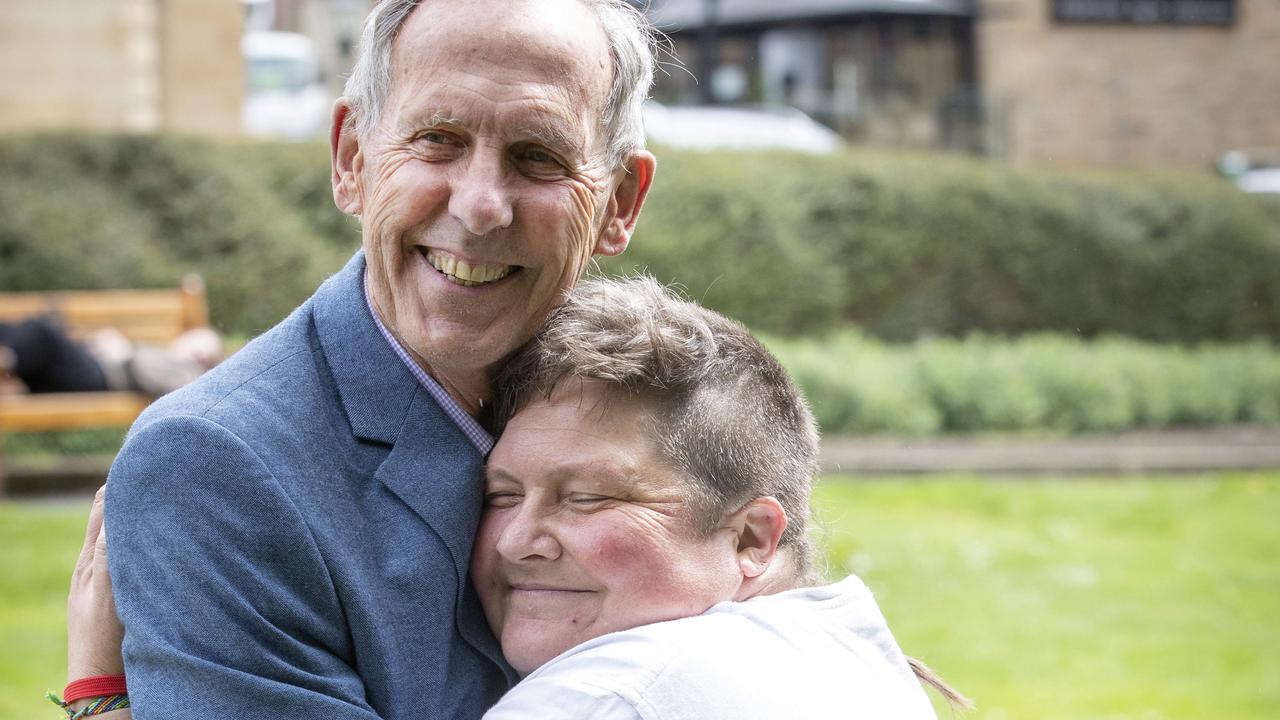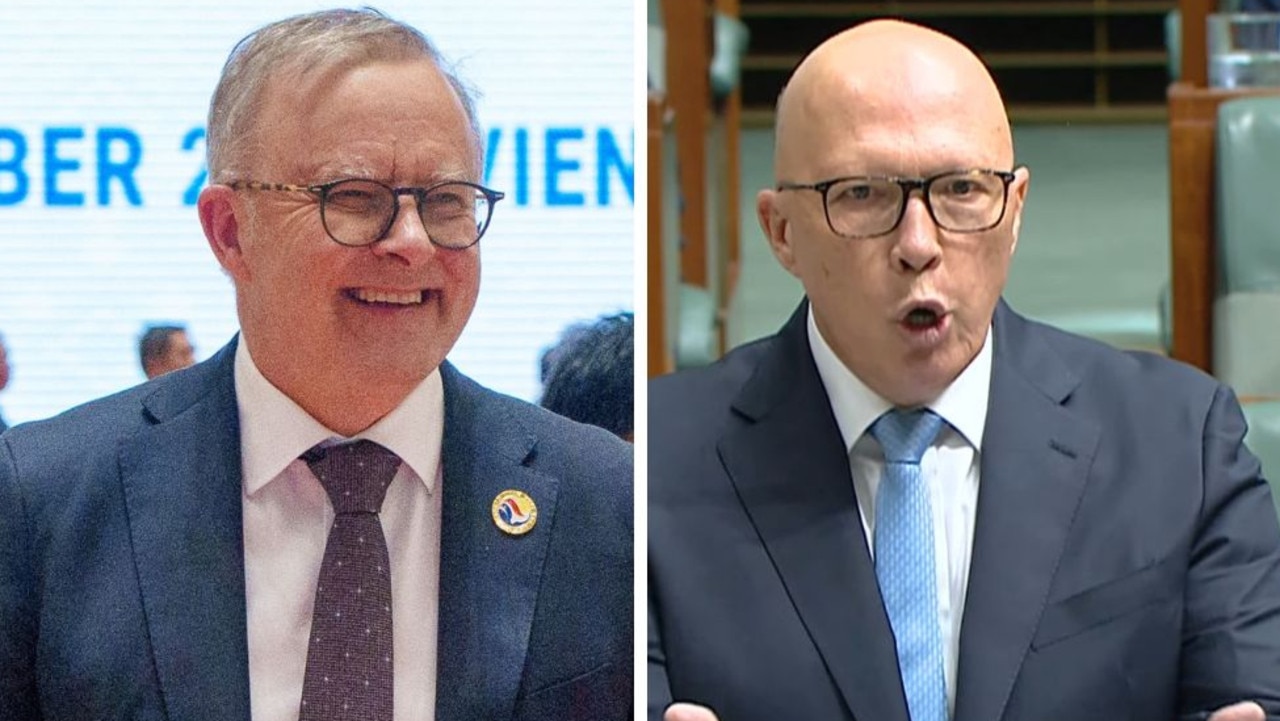Federal election 2016: Bill Shorten shows the value of persistence
BILL Shorten looked gone when Malcolm Turnbull toppled Tony Abbott but his ability to engage with ordinary voters has proved to be a big strength, writes Shaun Carney.
Analysis
Don't miss out on the headlines from Analysis. Followed categories will be added to My News.
TWO men who, as they headed towards adulthood long ago, convinced themselves they were good enough to become prime minister. Two men who have just fought their first election campaigns as leaders of their respective parties.
One, Malcolm Turnbull, ever-confident, self-assured, eloquent, had a very bad campaign. The other, Bill Shorten, who always speaks in public with a furrowed brow and stumbles through sentences that are often ungrammatical, had a very good campaign.
Was this dramatic contrast in styles and demeanour what got so far up Turnbull’s nose after the close of the polls on Saturday night that he basically threw a tantrum in his first post-election public appearance, claiming that his government had been robbed?
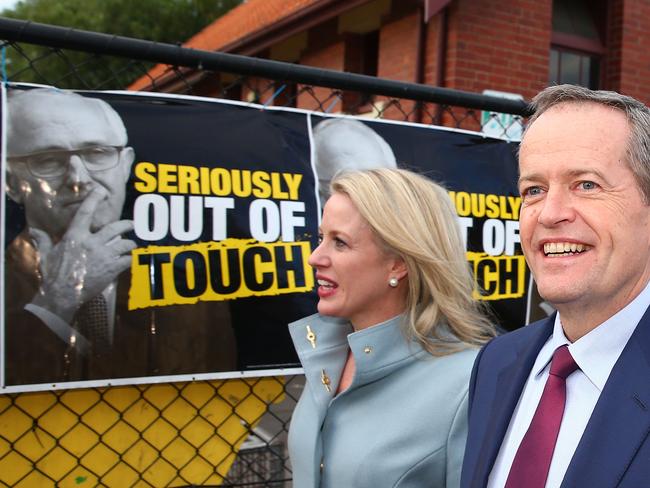
Shorten and his inner circle have long been convinced that the Prime Minister views the Labor leader as his social and intellectual inferior. That would certainly explain Turnbull’s infuriated performance.
Since taking over the Labor leadership after the party was smashed in the 2013 election, Shorten has made a habit of frustrating his opponents. He has had to cop a lot. As soon as he won the post-election Labor leadership contest against Anthony Albanese, he was dismissed by most of the political media as a placeholder.
No-one in modern political history had managed to lead an Opposition straight back into government in one term, so why would he be any different?
In any event, Shorten had defeated Albanese, a favourite of press gallery journalists, only by securing the support of his caucus colleagues, who voted along factional lines. In the ballot of party members, which carried equal weight with the decision of caucus in deciding the outcome, Albanese had been the victor by a substantial margin. That was no small humiliation for a new leader: his own party rank-and-file wanted the other bloke.
Anyway, Labor was a shamed rabble by the end of 2013, having seen ministers refusing to serve and embarking on vicious attacks against each other. And Shorten was damaged goods. He was a factional player and a former union secretary — a careerist, a labour movement hack. He’d deserted Rudd for Gillard in 2010 and then gone back to Rudd in 2013, which helped to cook Gillard’s goose. He was a backstabber.
But he kept going. He prosecuted the case against Tony Abbott and Joe Hockey’s first budget in 2014 and reversed the nation’s political sympathies. He was not personally popular but certainly managed to exploit the government’s fibs and mishandling of that budget so well that the Abbott government lost its popularity.
And then in the winter and spring of 2015, Shorten took two blows that were surely of the killer variety. First, he experienced several uncomfortable days in the witness box of the royal commission into trade unions which had been set up by Tony Abbott in part to destroy Shorten, a former Australian Workers’ Union national secretary.
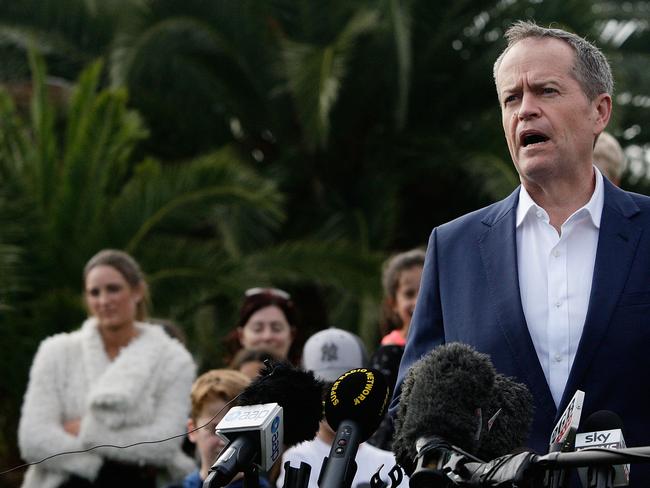
The royal commissioner himself made a highly unusual but apparently devastating intervention, casting doubt on Shorten’s truthfulness.
Then in September, Turnbull moved swiftly against Abbott in a party room coup. The government’s poll ratings skyrocketed. Labor’s collapsed. Virtually all of the analysis in the media concluded that Abbott’s fall from the prime ministership had been due to his own mistakes. None of it was attributed to Shorten’s effectiveness as opposition leader.
The polls fed into that perception. By early December, Newspoll showed Shorten with a preferred prime minister rating of 14 per cent. He was done.
But he wasn’t, was he? The numbers will change as more votes are counted but late on Monday, the Electoral Commission gave Labor under Shorten 71 seats to the Government’s 67 and more than 50 per cent of the vote.
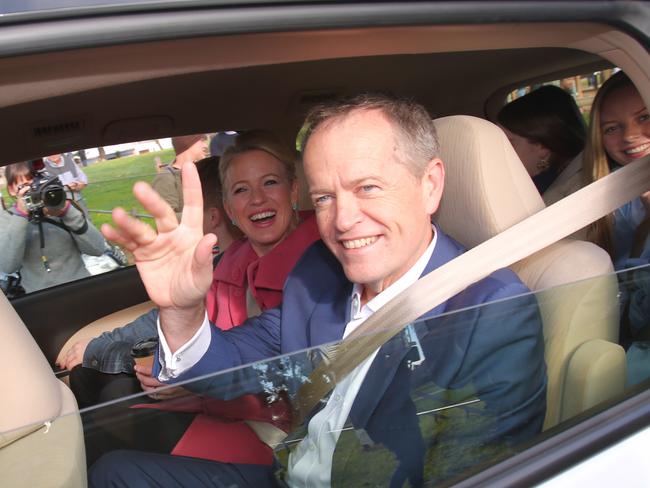
How did it happen? Turnbull turned out to be a poor campaigner. He did not revel in the experience of the campaign and was clearly not at ease rubbing shoulders with ordinary folk. For most of his life, he never had to. He was a top table guy — at university, at the bar, as a merchant banker, as a politician. He made his name impressing wealthy and powerful men: judges, bankers, CEOs. His policy preoccupations — innovation, corporate tax cuts — went over the heads of too many Australians.
Shorten seemed much easier on the trail. After he spent a few years with the legal firm Maurice Blackburn, he chucked in the law and became an organiser with the AWU, a blue-collar union covering people who work with their hands across a wide range of industries, many of them in the regions and outer suburbs.
He learned how to win them over. He also learned about the things that motivated them and concerned them in their lives: getting good health and educational services, having a decent wage.
His election pitch, and the policies that Labor put together under his leadership, were tailored to appeal to the sort of people he mixed with as an organiser. That is a different part of society to the one that Turnbull, political professionals and, dare it be said, most journalists — including me — live in. But those low-income people have a big say in deciding elections.
Shorten could still be Opposition leader when all the votes are counted. He may not win this election, whatever “win” means right now. But his election successes, against the judgments of the political class, show the value of not giving in and of sticking with your beliefs.
Shaun Carney is a Herald Sun columnist and adjunct associate professor of politics at Monash University.
Originally published as Federal election 2016: Bill Shorten shows the value of persistence

